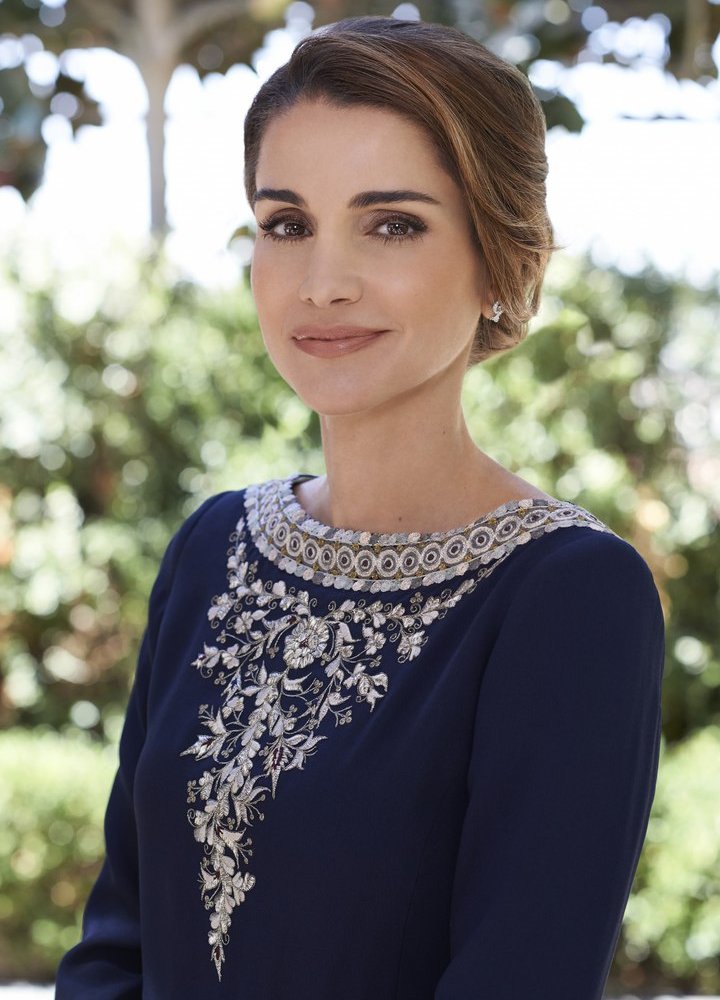Queen Rania of Jordan is not only a prominent figure in the Middle East but also an influential advocate for education, health, and women's rights globally. With her modern approach to monarchy and dedication to social issues, she has captured the hearts of many. In this article, we will delve into her life, achievements, and the impact she has made both within Jordan and beyond.
Born on August 31, 1970, in Kuwait to Palestinian parents, Rania Al Abdullah has always been a beacon of hope and progress. She became the Queen Consort of Jordan in 1999 when she married King Abdullah II. Since then, Queen Rania has utilized her position to promote various causes, including education, health, and community development. Her commitment to these issues has made her a trusted figure both in Jordan and on the international stage.
This article will explore the multifaceted life of Queen Rania, highlighting her biography, her advocacy work, and her role as a modern monarch. We will also provide insights into her personal life, her initiatives, and her influence on Jordanian society.
Table of Contents
- Biography of Queen Rania
- Personal Life
- Advocacy Work and Initiatives
- Education Initiatives
- Health Initiatives
- Women Empowerment
- Global Impact
- Conclusion
Biography of Queen Rania
Queen Rania was born as Rania Al Yasseen in Kuwait. She is the daughter of Palestinian parents, Faisal and Iman Al Yasseen. After the Gulf War, her family relocated to Jordan. Rania attended the University of Jordan, where she earned a degree in Business Administration. She later pursued a career in marketing and worked for major companies before her marriage to King Abdullah II.
| Date of Birth | August 31, 1970 |
|---|---|
| Place of Birth | Kuwait |
| Nationality | Jordanian |
| Education | University of Jordan (Business Administration) |
| Married to | King Abdullah II of Jordan |
| Children | Four (Crown Prince Hussein, Princess Iman, Princess Salma, Prince Hashem) |
Personal Life
Queen Rania married King Abdullah II on June 10, 1993. Together, they have four children: Crown Prince Hussein, Princess Iman, Princess Salma, and Prince Hashem. The royal family is known for their close-knit relationships and commitment to public service. Queen Rania often shares glimpses of their family life on social media, portraying a modern royal family that resonates with the youth.
Advocacy Work and Initiatives
Since becoming queen, Rania has championed numerous initiatives that focus on education, health, and community development. Her advocacy work is deeply rooted in her belief that every individual has the right to access quality education and healthcare. Queen Rania has been involved in various organizations and initiatives aimed at improving the lives of Jordanians and promoting social change.
Education Initiatives
Queen Rania is a strong proponent of education, believing it is the key to a brighter future. She has founded and supported various organizations that work towards enhancing educational opportunities in Jordan. Some of her notable initiatives include:
- Queen Rania Foundation: Established to improve the quality of education in Jordan and empower youth through innovative programs.
- Jordan Education Initiative: A public-private partnership aimed at transforming the education system in Jordan through technology and innovative practices.
- Teach for Jordan: A program that recruits and trains teachers to work in underserved areas, ensuring that every child has access to quality education.
Health Initiatives
In addition to her focus on education, Queen Rania has also prioritized health initiatives. She has worked tirelessly to promote health awareness and access to medical care, particularly for women and children. Some initiatives include:
- Jordan Health Care Foundation: Focused on improving healthcare services and promoting healthy lifestyles among Jordanians.
- Health Education Campaigns: Programs aimed at raising awareness on critical health issues such as maternal health, nutrition, and disease prevention.
Women Empowerment
Queen Rania is a vocal advocate for women's rights and empowerment. She believes that empowering women is essential for the development of society as a whole. Her initiatives in this area include:
- Women’s Empowerment Programs: Initiatives aimed at enhancing women’s participation in the workforce and decision-making processes.
- Global Campaigns: Participation in global movements that aim to eliminate gender-based violence and promote equal rights for women.
Global Impact
Queen Rania's influence extends beyond Jordan. She is involved in various international organizations and forums, advocating for critical issues such as education, health, and women's rights. Her voice is often heard at global conferences, where she shares Jordan's experiences and highlights the importance of social development.
Her work has garnered recognition worldwide, earning her various awards and accolades for her humanitarian efforts. Queen Rania is often cited as a role model for modern monarchs and a symbol of hope for those striving for social change.
Conclusion
Queen Rania of Jordan is a remarkable figure whose life and work reflect her commitment to education, health, and women’s empowerment. Her advocacy initiatives have made a significant impact on Jordanian society and continue to inspire many globally. As a modern monarch, she embodies the principles of leadership, compassion, and social responsibility.
We encourage readers to reflect on the importance of advocacy work and consider how they can contribute to positive change in their communities. Share your thoughts in the comments below and explore more articles on similar topics!
Final Thoughts
Queen Rania’s journey is a testament to the transformative power of dedicated leadership. We invite you to return for more inspiring stories and insights on global leaders making a difference in the world.


:max_bytes(150000):strip_icc():focal(914x254:916x256)/queen-rania-jordan-083122-1-549c087ccbb74a3a8b47aa638c6afd67.jpg)